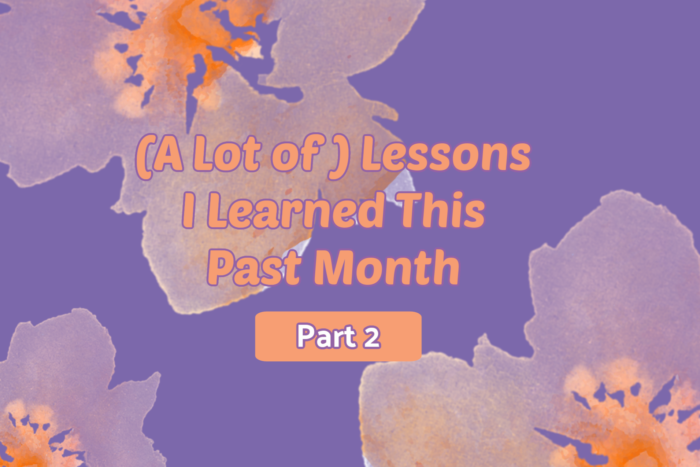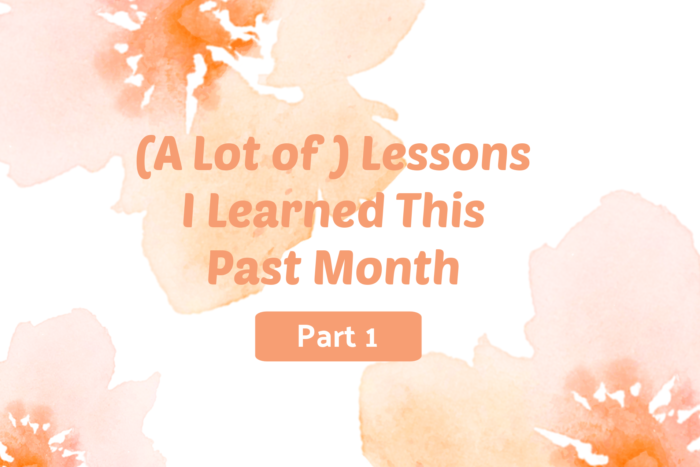What to Expect When You are Expecting
There’s a popular book for pregnant women called What to Expect When You’re Expecting. It was actually very helpful to me thirty years ago and it must be fairly timeless as I see the 4th revised version is still available today. But this post isn’t about expecting a baby. It’s about our expectations of this life and what we should expect when we are expecting.
But, first, a story.
Last fall, our youngest daughter, Marissa, decided to take a semester off of college so that she wouldn’t lose her senior year playing soccer. With that in mind, she restarted in Spring and this fall is her final semester before she graduates in December. She was really looking forward to a her final soccer season and things were going well. She was expecting a great season.
But that all came to a flying halt a couple of Saturdays ago when her foot made contact with someone else’s shoe and shattered two of the toes on her right foot. With a trip to the doctor and a boot on her foot, the expectation for a great soccer season faded away to nothing and left only bitter disappointment in its place.
It’s been a hard couple of weeks for her because this girl loves soccer. I know God is growing her and teaching her because she loves Him and He has promised us in Romans 8:28-29 to use all things in the lives of those who love Him to conform them to Christ’s image but–as we all know–some of those “all things” can be very painful.
As I was reflecting on the past few weeks yesterday, I was thinking how my daughter’s disappointed and unfulfilled expectation mirrors what we are all experiencing to some extent. Prior to March 2020 we all had expectations for our lives. They were reasonable expectations (for most of us). Things such as: Have a happy family whose needs are met; Enjoy spending time with those we love; Travel and vacations; Good health (and wonderful healthcare should we need it); buying anything we need (or want) and getting it in a timely fashion; financial security; etc, etc, etc.
While we knew (and had probably already experienced) the hard facts of life (such as disease, death, betrayal, broken relationships, financial difficulties, etc) the world around us always remained stable in the midst of those terrible trials.
But within one week in the year 2020, all of those expectations came crashing down. Suddenly, our world wasn’t so stable after all. We recognized in such a short time that we aren’t really free, after all. We recognized the stranglehold on the information flow. And we recognized the outright deception being played out on so many levels. It was disconcerting and frustrating. And as time marched on after that pivotal week, our expectations became less and less likely to be fulfilled.
And we were reminded in a more vivid way than ever before of what can we expect when we are expecting in this life on earth: We can expect disappointment and disillusionment.
But, just like my daughter will need to work through her unfulfilled expectation for her life, so, too, will we need to do the same. We need to release those expectations we had and rest in the Lord’s will for our lives. His will is not our will and we need to trust Him as we move forward.
The wonderful thing is that we can trust Him. Not only has He proven Himself over and over again in our own lives and the lives of those who have gone before us, but we are seriously watching what was prophesied two thousand years ago getting set up to come to pass right before our eyes. If that doesn’t confirm scripture for you, then I don’t know what will.
And we finally realize: There is one expectation that will never go unfulfilled. One hope that will never dim or fade away.
And that is our hope in Christ.
He made a way for us to be reconciled to God through His sacrifice on the cross so that we could live in His presence forever (learn more about this here.) Our expectations for a future with God in heaven will come to pass.
Unlike this old earth that is fading away, God is the same yesterday, today, and forever and we can count on Him to fulfill His promises.
So instead of tentative, precarious expectations based in this unsettled, strange world, perhaps it’s time we base our expectations in the rock of Ages. Perhaps this is part of what God is doing–moving His children’s hearts from this world to the one to come (Colossians 3:1-4); deepening our understanding of our role as pilgrims and sojourners in this world (I Peter 2:11); and helping us understand that our hope for this life and for our future should lie in Christ alone (Ephesians1:18-21).
Oh, my friends, let’s move our expectations from this world to the God of the universe. Let’s move them from the tentative and unsure to the certain and the definite.
And, in so doing, everything will change. Instead of being driven by discouragement and disappointment, we will rest secure in our eternal hope. Instead of being self-absorbed we will turn outwards, bringing hope to the lost souls around us and emanating the peace and joy that only God can give.
_______________________________
If I look at myself, I am depressed. If I look at those around me, I am often disappointed. If I look at my circumstances, I am discouraged. But if I look at Jesus, I am constantly, consistently, and eternally fulfilled! ~Author Unknown
_______________________________
(Yeah, that sounds so wonderful, doesn’t it? And I do know that what I wrote above is true. But that doesn’t mean I always live it. Like you, I am trying to grow and learn in this strange new world we are living in. It’s a real challenge some days. The most important thing that has helped me is studying and memorizing the Word. If you are saved and just don’t know where to begin in moving your hope from this world to an eternal hope, start there. Open Ephesians 1 and read what God has said about His own. Read Philippians. Read John 10, John 15, Colossians 3, Psalm 37. And on and on. God has given us so much in His Word from which we can draw strength in these difficult days.)










